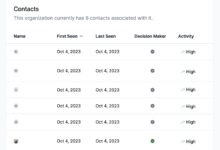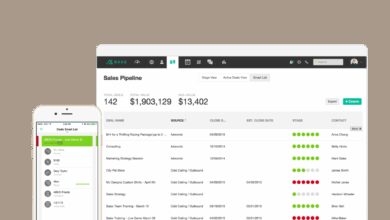Phone Based CRM: 7 Powerful Benefits You Can’t Ignore
Imagine managing your entire customer relationship strategy right from your smartphone. With a phone based CRM, that’s not just possible—it’s seamless, efficient, and revolutionizing how businesses connect with clients.
What Is a Phone Based CRM?

A phone based CRM (Customer Relationship Management) system is a mobile-first platform designed to help businesses manage interactions with current and potential customers directly from a smartphone or tablet. Unlike traditional CRM software that relies on desktop access, phone based CRM solutions are built for mobility, enabling sales teams, customer service agents, and field workers to stay connected and productive no matter where they are.
Core Definition and Functionality
At its heart, a phone based CRM consolidates customer data—such as contact information, communication history, purchase behavior, and support tickets—into a centralized, mobile-accessible platform. This allows users to log calls, send emails, schedule follow-ups, and update deal stages—all from their mobile device.
- Real-time access to customer profiles
- Integration with phone features like calling, SMS, and calendar
- Offline mode for use in low-connectivity areas
These systems often sync with cloud-based databases, ensuring that data entered on a mobile device is instantly available across the organization. This eliminates delays and reduces the risk of miscommunication.
Evolution from Desktop to Mobile CRM
Traditional CRM platforms like Salesforce and HubSpot began as desktop-centric tools, requiring users to be at their desks to update records or track leads. As mobile technology advanced, businesses demanded more flexibility. The rise of smartphones and 4G/5G networks paved the way for mobile CRM solutions, culminating in today’s phone based CRM systems that prioritize usability, speed, and integration.
According to a report by Grand View Research, the global CRM market is expected to reach $128.93 billion by 2030, with mobile CRM adoption growing at a compound annual growth rate (CAGR) of 13.9%. This shift reflects the increasing need for on-the-go access and real-time responsiveness in customer engagement.
“The future of CRM isn’t on a desktop—it’s in the palm of your hand.” — TechCrunch, 2023
Top 7 Benefits of Using a Phone Based CRM
Adopting a phone based CRM isn’t just about convenience—it’s a strategic move that can transform how your team operates. From boosting productivity to improving customer satisfaction, the advantages are both immediate and long-term.
1. Enhanced Mobility and Flexibility
One of the most compelling reasons to use a phone based CRM is the freedom it offers. Sales representatives no longer need to return to the office to update records or check client histories. Whether they’re visiting a client, attending a trade show, or working remotely, they can access all necessary information instantly.
- Access CRM data from any location with internet connectivity
- Update customer records in real time during or after a meeting
- Reduce administrative lag by eliminating post-visit data entry
This level of flexibility is especially valuable for field sales teams, service technicians, and consultants who spend most of their time outside the office.
2. Improved Sales Productivity
A phone based CRM streamlines the sales process by automating routine tasks and providing instant access to critical information. Features like one-click calling, automated logging of calls and emails, and AI-powered reminders ensure that no opportunity slips through the cracks.
For example, when a sales rep receives a call from a lead, the CRM can automatically pull up the customer’s profile, display past interactions, and suggest next steps. This reduces response time and increases the likelihood of conversion.
According to Salesforce’s State of Sales Report, high-performing sales teams are 1.5x more likely to use mobile CRM tools than underperforming teams.
3. Real-Time Data Synchronization
With a phone based CRM, data entered on a mobile device is instantly synced with the central database. This ensures that everyone on the team—whether in the field or in the office—has access to the most up-to-date information.
- Eliminate duplicate entries and conflicting records
- Enable managers to monitor team performance in real time
- Support accurate forecasting and reporting
Real-time sync also enhances collaboration. For instance, if a customer service agent updates a ticket status while on a call, the sales manager can immediately see the change and adjust their strategy accordingly.
Key Features to Look for in a Phone Based CRM
Not all phone based CRM systems are created equal. To get the most value, it’s essential to choose a platform that offers the right mix of functionality, usability, and integration capabilities.
Call and SMS Integration
A standout feature of any phone based CRM is its ability to integrate directly with your phone’s calling and messaging functions. This allows users to make calls, send texts, and log interactions without leaving the app.
- Automatic call logging with duration and timestamp
- Click-to-call functionality from contact lists
- SMS templates for quick, consistent messaging
Platforms like HubSpot CRM and Zoho CRM offer robust mobile apps with deep phone integration, making it easy to maintain a complete communication history.
Offline Access and Sync
Field workers often operate in areas with poor or no internet connectivity. A good phone based CRM should allow users to view and edit records offline, with changes syncing automatically once a connection is restored.
This feature ensures continuity of work and prevents data loss. For example, a real estate agent showing properties in a remote area can still update client notes and schedule follow-ups, knowing the data will sync later.
Customizable Dashboards and Reports
Mobile dashboards should provide at-a-glance insights into key performance indicators (KPIs) such as sales pipeline, conversion rates, and customer engagement. The ability to customize these dashboards ensures that users see only the data that matters to them.
- Visual charts and graphs for quick analysis
- Drill-down capabilities for detailed views
- Push notifications for critical updates
These dashboards empower decision-making on the go, enabling managers to respond to trends and issues in real time.
How Phone Based CRM Transforms Sales Teams
Sales is one of the most mobile-dependent functions in any organization. A phone based CRM acts as a digital sales assistant, equipping reps with the tools they need to close deals faster and more efficiently.
Accelerated Lead Response Time
Speed is critical in sales. Research by InsideSales.com shows that the odds of qualifying a lead drop by 12 times if the first follow-up call is made after 10 minutes. A phone based CRM enables instant response by notifying reps of new leads and providing one-click calling.
Some platforms even use AI to prioritize leads based on behavior, ensuring that the hottest prospects are contacted first.
Seamless Follow-Up Automation
Following up with leads and customers is often the difference between closing a deal and losing it. A phone based CRM can automate follow-up tasks, such as sending reminder emails, scheduling callbacks, or assigning tasks to team members.
- Set automated reminders for post-call follow-ups
- Use templates for consistent messaging
- Track follow-up completion rates
This automation reduces the cognitive load on sales reps, allowing them to focus on building relationships rather than managing to-do lists.
Improved Pipeline Visibility
With a phone based CRM, sales managers can monitor the entire sales pipeline from their mobile device. They can see which deals are progressing, which are stuck, and which need intervention—all in real time.
This visibility enables proactive coaching and better resource allocation. For example, if a rep is struggling with a particular stage of the funnel, the manager can step in with guidance or training.
Phone Based CRM for Customer Service Excellence
Customer service is another area where phone based CRM systems shine. By giving support agents instant access to customer history and context, these tools enable faster, more personalized service.
360-Degree Customer View
When a customer calls in, a phone based CRM can instantly display their entire interaction history—past purchases, support tickets, emails, and even social media mentions. This holistic view allows agents to understand the customer’s journey and provide relevant solutions.
- Reduce repeat explanations and improve first-call resolution
- Personalize interactions based on past behavior
- Anticipate needs using predictive analytics
According to Zendesk’s Customer Experience Trends Report, 72% of customers expect agents to know their contact history, and 67% expect personalized service.
Faster Ticket Resolution
With mobile access to support systems, agents can resolve tickets on the go. For example, a technician visiting a client site can update a ticket, attach photos, and close the issue—all from their phone.
This reduces resolution time and improves customer satisfaction. It also enables remote support teams to operate more efficiently, especially in distributed or hybrid work environments.
Proactive Support Capabilities
Advanced phone based CRM systems use AI and machine learning to predict potential issues before they arise. For instance, if a customer’s usage pattern suggests they might be experiencing a problem, the CRM can trigger an automated check-in call or message.
This proactive approach not only prevents churn but also strengthens customer loyalty by showing that the company cares.
Top Phone Based CRM Platforms in 2024
With so many options available, choosing the right phone based CRM can be overwhelming. Here are some of the top platforms that excel in mobile functionality, user experience, and integration.
1. HubSpot CRM
HubSpot offers a free, user-friendly CRM with a powerful mobile app. Its phone based features include call logging, email tracking, task management, and real-time notifications. The app integrates seamlessly with HubSpot’s marketing and sales tools, making it ideal for small to mid-sized businesses.
- Free plan with robust mobile features
- Intuitive interface designed for mobile use
- Deep integration with email and calendar
Learn more at HubSpot CRM.
2. Salesforce Mobile
Salesforce, the industry leader in CRM, offers a comprehensive mobile app that brings the full power of its platform to smartphones. Features include AI-powered insights (Einstein), offline access, and customizable dashboards.
- Enterprise-grade security and scalability
- Advanced automation and workflow tools
- Extensive third-party app ecosystem
Salesforce is best suited for larger organizations with complex sales processes. Visit Salesforce Mobile for details.
3. Zoho CRM
Zoho CRM’s mobile app is known for its affordability and feature-rich interface. It includes voice-to-text notes, GPS-based check-ins, and AI-driven sales predictions. The app supports offline mode and integrates with over 40 business applications.
- Budget-friendly with strong mobile capabilities
- AI assistant (Zia) for smart suggestions
- Customizable workflows and automation
Explore Zoho CRM at Zoho CRM.
Implementing a Phone Based CRM: Best Practices
Adopting a new CRM system is only the first step. To ensure success, organizations must follow best practices for implementation, training, and ongoing optimization.
Start with Clear Objectives
Before selecting a phone based CRM, define what you want to achieve. Is it faster lead response? Better customer service? Improved team collaboration? Clear goals will guide your platform choice and implementation strategy.
- Identify key performance metrics to track
- Involve stakeholders from sales, service, and IT
- Map current workflows to identify pain points
This foundational step ensures that the CRM aligns with business needs.
Ensure Data Quality and Migration
Poor data quality can undermine even the best CRM system. Before migration, clean your existing data—remove duplicates, update outdated records, and standardize formats.
Most phone based CRM platforms offer data import tools and support services to help with migration. However, it’s crucial to test the process with a small dataset first to catch any issues.
Train Users and Encourage Adoption
User adoption is often the biggest challenge in CRM implementation. Provide hands-on training, create quick-reference guides, and assign internal champions to support the transition.
- Offer role-specific training sessions
- Use gamification to motivate usage
- Gather feedback and iterate on the setup
According to Nucleus Research, companies that invest in CRM training see a 152% higher return on investment (ROI) than those that don’t.
Future Trends in Phone Based CRM Technology
The evolution of phone based CRM is far from over. Emerging technologies are set to make these systems even more intelligent, intuitive, and indispensable.
AI and Predictive Analytics
Artificial intelligence is transforming phone based CRM by enabling predictive lead scoring, sentiment analysis, and automated task suggestions. For example, AI can analyze call transcripts to identify customer emotions and recommend next steps.
Platforms like Salesforce Einstein and Zoho Zia are already incorporating these capabilities, and their adoption is expected to grow rapidly.
Voice-Activated CRM Assistants
Imagine saying, “Log this call and schedule a follow-up for next week,” and having your CRM execute the command. Voice-activated assistants, powered by natural language processing (NLP), are making this a reality.
- Reduce manual data entry
- Enable hands-free operation in the field
- Improve accessibility for users with disabilities
As voice recognition accuracy improves, this feature will become a standard in phone based CRM apps.
Integration with Wearables and IoT
Future CRM systems may integrate with smartwatches, AR glasses, and IoT devices. For instance, a field technician wearing AR glasses could receive real-time CRM data overlaid on their view of a machine, enabling faster diagnostics and repairs.
While still in early stages, these integrations represent the next frontier in mobile CRM innovation.
What is a phone based CRM?
A phone based CRM is a mobile-optimized customer relationship management system that allows users to manage customer interactions, sales pipelines, and support tickets directly from their smartphone or tablet. It integrates with phone features like calling, SMS, and GPS for enhanced functionality.
How does a phone based CRM improve sales productivity?
It improves productivity by enabling real-time access to customer data, automating follow-ups, providing click-to-call functionality, and offering offline access. This reduces administrative tasks and accelerates the sales cycle.
Can a phone based CRM work without internet access?
Yes, many phone based CRM platforms offer offline mode, allowing users to view and edit records without an internet connection. Changes are automatically synced once the device reconnects to the internet.
Is a phone based CRM secure?
Reputable phone based CRM platforms use encryption, multi-factor authentication, and compliance with data protection regulations (like GDPR) to ensure data security. However, users should follow best practices like using strong passwords and keeping apps updated.
Which industries benefit most from phone based CRM?
Industries with mobile workforces—such as real estate, insurance, field service, retail, and healthcare—benefit the most. Any business that relies on face-to-face or remote customer interactions can gain significant value from a phone based CRM.
Phone based CRM systems are no longer a luxury—they’re a necessity for modern businesses that value agility, customer satisfaction, and data-driven decision-making. From boosting sales efficiency to enabling proactive customer service, the benefits are clear and measurable. As technology continues to evolve, these platforms will become even more intelligent and integrated, shaping the future of customer relationship management. By choosing the right solution and implementing it effectively, organizations can stay ahead of the curve and deliver exceptional experiences from the palm of their hand.
Further Reading:








